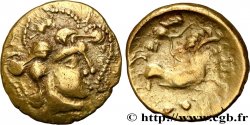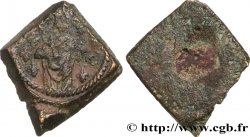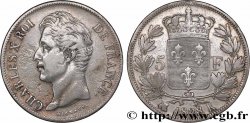Live auction - fme_447734 - IV REPUBLIC Plaquette, Fédération des Anciens de la Rhénanie
You must signin and be an approved bidder to bid, LOGIN TO BID. Accounts are subject to approval and the approval process takes place within 48 hours. Do not wait until the day a sale closes to register. Clicking on "BID" constitutes acceptance of the terms of use of cgb.fr private live auctions.
Bids must be placed in whole Euro amounts only. The sale will start closing at the time stated on the item description; any bids received at the site after the closing time will not be executed. Transmission times may vary and bids could be rejected if you wait until the last second. For further information check the Live auction FAQ
All winning bids are subject to a 18% buyer’s fee.
All winning bids are subject to a 18% buyer’s fee.
| Estimate : | 100 € |
| Price : | no bid |
| Maximum bid : | no bid |
| End of the sale : | 14 May 2024 15:54:41 |
Type : Plaquette, Fédération des Anciens de la Rhénanie
Date: 1950
Mint name / Town : Allemagne, Rhénanie
Metal : bronze
Diameter : 86,5 mm
Orientation dies : 12 h.
Engraver DELANNOY Maurice (1885-1972)
Weight : 207 g.
Edge : lisse + Triangle BRONZE
Puncheon : Triangle BRONZE
Coments on the condition:
Superbe plaquette avec une patine brune, plus sombre autour des reliefs
Obverse
Obverse legend : KEHL / MAYENCE / COBLENCE // 1918 - 1930.
Obverse description : Femme casquée et armée. Signé : DELANNOY.
Reverse
Reverse legend : FÉDÉRATION DES / ANCIENS DE LA / RHÉNANIE ET / DE LA RUHR // A / ROBERT HOLVECK / 1950.
Reverse description : Légende en 4 lignes au-dessus d’un médaillon et en 3 lignes à l’exergue.
Commentary
Dimensions : 86,5*56,5 mm.
Plaquette décernée à Robert Holveck en 1950.
En mars 1920 débute un soulèvement par les communistes dans la région de la Ruhr en réponse au putsch de Kapp. Ce dernier prend fin lors de l'intervention de la Reichswehr, armée de la république de Weimar. En mars 1921, les troupes françaises et belges occupèrent la région de Duisbourg, une partie de la Rhénanie démilitarisée en vertu du traité de Versailles. En janvier 1923, le reste de la région fut occupé en représailles des retards de paiement de l’Allemagne concernant les énormes réparations exigées lors du traité de Versailles. Le gouvernement allemand de la jeune république de Weimar riposta par la « résistance passive », le fameux Ruhrkampf. Les mineurs et les cheminots refusèrent d’obéir aux ordres des forces occupantes, paralysant la production et les transports. Mais les conséquences financières furent désastreuses et contribuèrent largement à l’hyperinflation qui ruina complètement les finances publiques allemandes et traumatisèrent durablement les Allemands en 1923. L’appel à la résistance passive fut donc levé par le gouvernement de Gustav Stresemann en septembre 1923. La fin de la résistance passive permit au gouvernement allemand de négocier le plan Dawes et d’obtenir ainsi le retrait des troupes étrangères en 1925. Par la suite, les incidents et actes de sabotage perpétrés lors de l’occupation de la Ruhr seront largement exagérés et récupérés par la propagande nazie.
Plaquette décernée à Robert Holveck en 1950.
En mars 1920 débute un soulèvement par les communistes dans la région de la Ruhr en réponse au putsch de Kapp. Ce dernier prend fin lors de l'intervention de la Reichswehr, armée de la république de Weimar. En mars 1921, les troupes françaises et belges occupèrent la région de Duisbourg, une partie de la Rhénanie démilitarisée en vertu du traité de Versailles. En janvier 1923, le reste de la région fut occupé en représailles des retards de paiement de l’Allemagne concernant les énormes réparations exigées lors du traité de Versailles. Le gouvernement allemand de la jeune république de Weimar riposta par la « résistance passive », le fameux Ruhrkampf. Les mineurs et les cheminots refusèrent d’obéir aux ordres des forces occupantes, paralysant la production et les transports. Mais les conséquences financières furent désastreuses et contribuèrent largement à l’hyperinflation qui ruina complètement les finances publiques allemandes et traumatisèrent durablement les Allemands en 1923. L’appel à la résistance passive fut donc levé par le gouvernement de Gustav Stresemann en septembre 1923. La fin de la résistance passive permit au gouvernement allemand de négocier le plan Dawes et d’obtenir ainsi le retrait des troupes étrangères en 1925. Par la suite, les incidents et actes de sabotage perpétrés lors de l’occupation de la Ruhr seront largement exagérés et récupérés par la propagande nazie.








 Report a mistake
Report a mistake Print the page
Print the page Share my selection
Share my selection Ask a question
Ask a question Consign / sell
Consign / sell
 Full data
Full data















